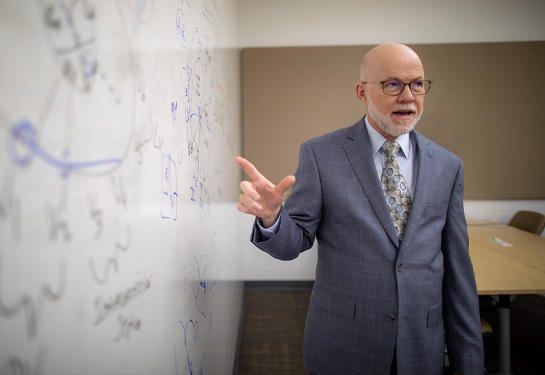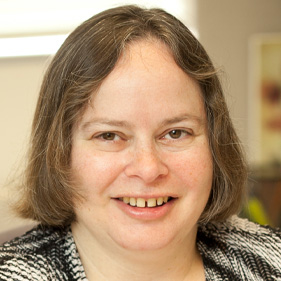Moore Foundation invests $3 million in future UC Davis nursing scientists
Funding to help counter national downward trend of graduate student enrollment
Enrollment in Doctor of Philosophy nursing programs across the nation is down more than 3% in the last year.
The American Association of Colleges of Nursing (AACN) says those findings from its new survey pose a threat to meeting the nation’s health care needs. Obstacles to pursuing a Ph.D. in nursing involve a lack of understanding about how Ph.D. education influences population-level health and insufficient financial support for doctoral studies.
But a new $3 million investment from the Gordon and Betty Moore Foundation aims to reverse that downward trend. It offers to lower the cost for students in the Doctor of Philosophy (Ph.D.) in Nursing Science and Health-Care Leadership program at the Betty Irene Moore School of Nursing at UC Davis.
In addition to substantial tuition packages for up to five years of full-time study, the funding provides:
- Travel for conference presentations
- Start-up awards
- Research-related expenses
- Dissertation assistance
“We are grateful that the same foundation that launched this school continues to invest in the future of our students and programs,” said Dean Stephen Cavanagh. “To advance nursing practice, shape health policy and improve health, rigorous scientific inquiry is needed. And it’s needed from a diversity of students and perspectives.”
Lower enrollment brings increased concerns
The enrollment rate for research-focused Ph.D. programs in nursing is a matter of significant concern for the profession. With many Ph.D.-prepared faculty members retiring, there is an urgent need for incoming Ph.D. graduates to fill these positions. Nursing programs face a faculty shortage of nearly 9%, a percentage that is expected to grow in the next year.
In addition to fewer faculty, a 2019 report expressed concerns about the future of the profession: if nursing research fails to sufficiently inform clinical practice, the report stated, not only are patients' health outcomes jeopardized, but the very professional identity of nursing is also at risk. Fewer than 1% of nurses have earned a Ph.D.
Ph.D.-prepared nursing scientists are essential in developing the evidence base that informs clinical practice, evaluating and enhancing current nursing interventions, and innovating new approaches to enhance the quality of life for individuals across the lifespan.—Sheryl Catz, Doctor of Philosophy Program Director
"Ph.D.-prepared nursing scientists are essential in developing the evidence base that informs clinical practice, evaluating and enhancing current nursing interventions, and innovating new approaches to enhance the quality of life for individuals across the lifespan," said program director Sheryl Catz. “We must also create a diverse community of nursing scholars to teach future generations of nurses.”
Current and future Ph.D. students also have the option to apply for the School of Nursing’s graduate certificate programs. They include specialties in health professions education, family caregiving, health equity, and patient safety and quality.
Diverse perspectives promote deeper understanding
Faculty believe the problems that nursing science can solve are not the challenges of nurses alone. So, the School of Nursing’s program has an interdisciplinary focus. Since its founding, cohorts include registered and advanced-practice nurses, as well as scientists from other disciplines.
“Varied views promote deeper understanding of a problem and, oftentimes, different solutions than if only one discipline were considered,” Catz said.
UC Davis and the Gordon and Betty Moore Foundation have partnered in a shared vision to transform health care since the School of Nursing was founded with the foundation’s initial commitment of $100 million. Since 2008, the foundation has given an additional $60 million to continue the vision of Betty Irene Moore.


